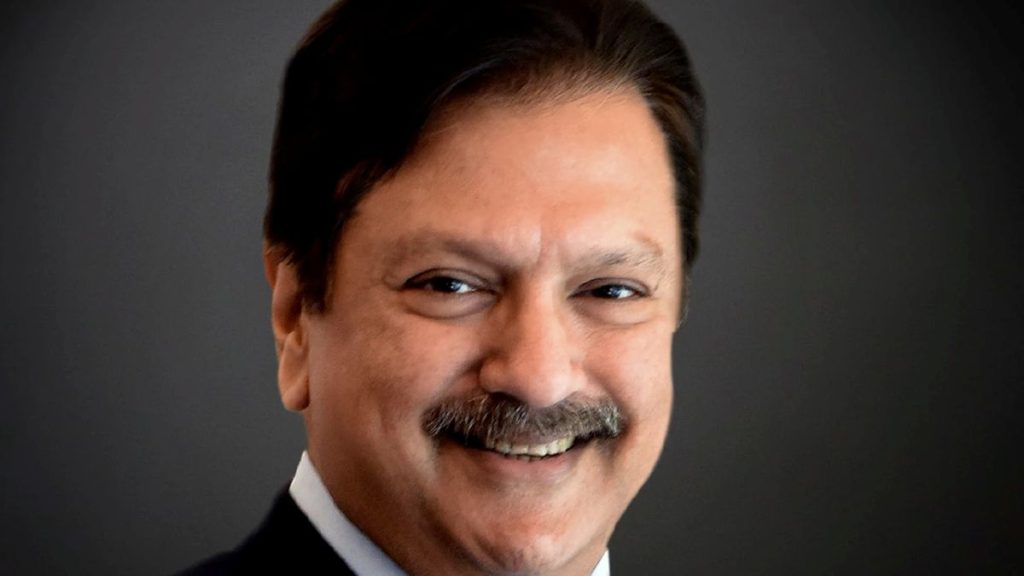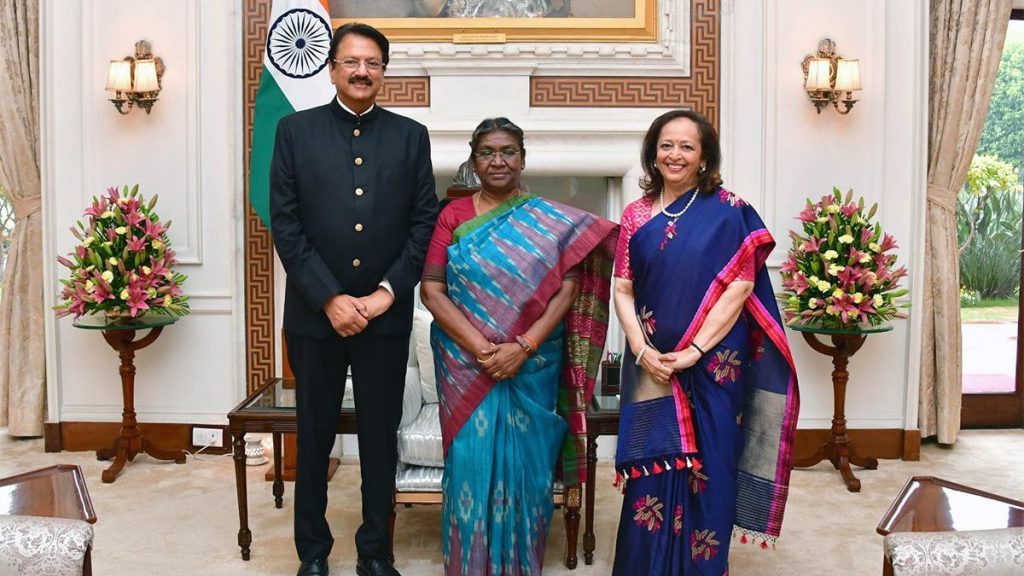
In the labyrinthine world of Indian business, where fortunes are forged in boardrooms and tempered by market tempests, few stories resonate as profoundly as that of Ajay Piramal. Born into a modest textile dynasty in the sun-baked sands of Rajasthan, Piramal has woven a tapestry of triumph from the frayed edges of family legacy and personal loss. Today, as chairman of the Piramal Group a sprawling conglomerate that touches everything from life-saving pharmaceuticals to sustainable urban skylines his net worth stands at an estimated $3.3 billion as of September 2025. This isn’t just a tale of wealth accumulation; it’s a masterclass in resilience, where every pivot from cotton looms to cutting-edge healthcare innovations underscores a philosophy: “Doing well by doing good.” At 70, Piramal remains a beacon for entrepreneurs navigating India’s dynamic economic canvas, proving that true empire-building demands not just capital, but courage.
Threads of Inheritance: The Early Warp and Weft
Ajay Gopikisan Piramal entered the world on August 3, 1955, in the arid town of Bagar, Jhunjhunu district, Rajasthan a cradle of resilient Marwari traders known for their unyielding grit. His grandfather, Seth Piramal Chaturbhuj Makharia, had laid the family’s entrepreneurial cornerstone in 1934 with a cotton trading venture that blossomed into textile mills during Mumbai’s industrial boom. By the time young Ajay arrived in the bustling metropolis as a child, the Piramal name evoked images of humming factories and bolt upon bolt of fabric.
Education became his first loom. Piramal pursued a bachelor’s in science from Mumbai’s Jai Hind College and Basantsingh Institute, followed by a master’s in management studies from the prestigious Jamnalal Bajaj Institute. In 1992, he sharpened his edge at Harvard Business School’s Advanced Management Programme, absorbing global strategies that would later redefine his path. Yet, academia was merely preparation; the real forge awaited in 1977, when, at just 22, he joined the family fold as a management trainee at Gujarat Glass Limited, a subsidiary of the Piramal enterprises.
The textile sector, vibrant yet volatile, became his apprenticeship. Piramal immersed himself in operations at Morarjee G. Mills, learning the rhythms of supply chains and the sting of labor unrest. But fate, ever the capricious weaver, unraveled his early stability. In 1979, his father, Gopikrishna Piramal, succumbed to a sudden illness, thrusting the 24-year-old into the vortex of leadership alongside his brothers, Dilip and Ashok. The brothers collaborated briefly, but the industry’s headwinds rising costs and global competition strained the seams. Tragedy compounded the challenge: in 1984, Ashok, the eldest, lost his battle with cancer, leaving Ajay as the sole steward of the family’s dwindling fortunes.
At 29, widowed from his initial dreams of textiles, Piramal faced a stark choice: cling to fading threads or spin something bolder. He chose reinvention, a decision that would thread his life with golden filaments of success.
The Bold Pivot: Spinning Pharma into Gold
The late 1980s marked Piramal’s audacious leap from cotton to capsules. India’s pharmaceutical sector, then a patchwork of small players overshadowed by multinationals, beckoned as untapped territory. In 1988, with a mix of family resources and sheer audacity, Piramal orchestrated the acquisition of Nicholas Laboratories, an Australian-owned firm with a foothold in India. Renamed Nicholas Piramal, it became his launchpad. This wasn’t mere opportunism; it was a calculated bet on healthcare’s inexorable rise, fueled by India’s burgeoning population and global drug demands.
Under Piramal’s helm, the company didn’t just grow it devoured competitors. He snapped up Indian arms of giants like Roche, Boehringer Mannheim, Rhône-Poulenc, ICI, and Hoechst, transforming a modest outfit into India’s fifth-largest pharma powerhouse by the early 2000s. Strategic alliances followed: a 2007 pact with Merck for drug discovery, and another in 2008 with Eli Lilly. Piramal’s touch was alchemical blending cost-effective generics with innovative R&D, all while navigating regulatory mazes and currency fluctuations.
The crown jewel came in 2010: the $3.8 billion sale of Piramal Healthcare’s domestic formulations business to U.S. behemoth Abbott Laboratories. This blockbuster deal, negotiated in a marathon four-hour session, flooded the group with capital and headlines. Critics whispered of retreat, but Piramal saw it as evolution exiting a saturated market to refocus on high-margin contract manufacturing and critical care. “Businesses must shed old skin to grow new,” he later reflected in a rare interview, embodying the resilience that turned potential peril into prosperity.
Diversification became his mantra. By the mid-2010s, Piramal Enterprises ventured into financial services, acquiring stakes in Shriram Capital and Transport Finance (though he stepped down as chairman in 2019). Real estate bloomed with Piramal Realty, pioneering sustainable projects in Mumbai’s high-rises, including the redevelopment of the iconic Crossroads mall from disused factory sites. Glass packaging, healthcare analytics these weren’t side hustles; they were deliberate threads in a resilient fabric, now spanning 30 countries and over 100 markets.
Trials of the Tapestry: Resilience Amid Storms
No empire rises without rents in the weave. The 2018 IL&FS crisis rippled through India’s non-banking financial sector, ensnaring Piramal Enterprises in liquidity crunches and asset quality woes. Exposure to real estate developers amid a property slowdown shaved millions from valuations, testing the group’s mettle. Piramal, ever the stoic, doubled down: in 2021, he clinched the $4.7 billion resolution of Dewan Housing Finance Corporation (DHFL) under the Insolvency and Bankruptcy Code, birthing one of India’s largest affordable housing lenders. This high-stakes maneuver, amid regulatory scrutiny and bidder rivalries, not only salvaged but amplified his financial arm, underscoring a tenet: crises are crucibles for the bold.
The COVID-19 pandemic further strained the loom, disrupting supply chains and demand for non-essential pharma. Yet, Piramal pivoted to oxygen concentrators and vaccine logistics, while his foundation ramped up aid. By 2023, a Carlyle Group infusion of $490 million for a 20% stake in Piramal Pharma signaled renewed investor faith. And in 2025, the merger of Piramal Enterprises with Piramal Finance slated for completion by September promises a tax shield of ₹14,500 crore and a leaner, NBFC-focused entity poised for explosive growth. These moves have propelled his wealth to $3.3 billion, a 20% uptick from 2024, driven by surging stock in Piramal Enterprises and strategic demergers.
The Human Thread: Family, Faith, and Philanthropy

Behind the balance sheets beats a heart attuned to legacy. Piramal married Dr. Swati Shah, a physician and author, during his MBA days; their union blends business acumen with social conscience. Their son, Anand, executive director and recent groom to Isha Ambani in 2018, embodies generational continuity helming Piramal Realty while forging ties with India’s elite. Daughter Nandini, focused on human resources, ensures the group’s cultural weave remains strong. The family gifted the opulent Gulita mansion in Mumbai’s Worli a $100 million jewel with diamond-themed suites and a private temple to Anand and Isha as a wedding present, symbolizing enduring bonds.
Faith is Piramal’s quiet anchor. Devotee of Radhanath Swami and advisor to ISKCON’s Annamrita program, he channels 10-15% of his time into the Piramal Foundation, founded in 2006. This philanthropic arm has touched 112 million lives through initiatives in health (like the Arogya Vani helpline), education (Piramal Fellowships for rural teachers), water (solar-powered ATMs via Sarvajal), and nutrition serving 1.2 million meals daily. “Wealth is a tool for welfare,” Piramal often says, a ethos etched in honors like an honorary doctorate from IIT Indore and Amity University.
A Legacy Unraveled: The Road Ahead
As October 2025 unfolds, Ajay Piramal surveys an empire valued at billions, yet his gaze lingers on horizons unseen. With Piramal Pharma eyeing global CDMO expansions, financial services targeting underserved housing, and realty pioneering green urbanism, the group aligns with India’s self-reliance vision Make in India, at its core. Challenges persist: geopolitical tensions, inflation’s bite, and the imperative for ethical AI in healthcare analytics. But Piramal’s resilience a blend of Harvard-honed strategy and Rajasthan-rooted resolve positions him uniquely.
In a nation of 1.4 billion dreamers, Ajay Piramal’s journey from textile threads to a $3.3 billion empire isn’t anomaly; it’s archetype. It whispers to every aspiring mogul: Resilience isn’t enduring storms it’s learning to dance in the rain, weaving losses into laurels. As he steers his conglomerate toward uncharted markets, one truth endures: The finest empires aren’t built on gold alone, but on the unyielding fiber of the human spirit.
Last Updated on Monday, October 6, 2025 2:55 pm by Tamatam charan sai Reddy